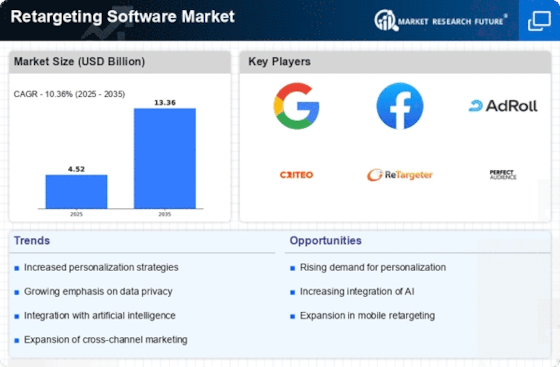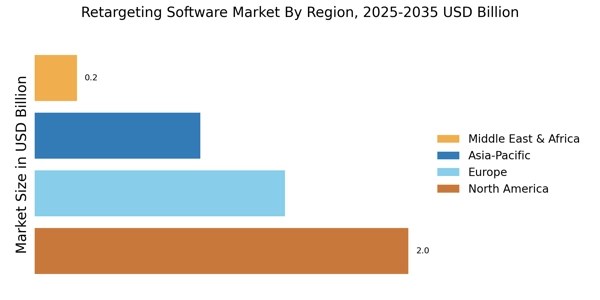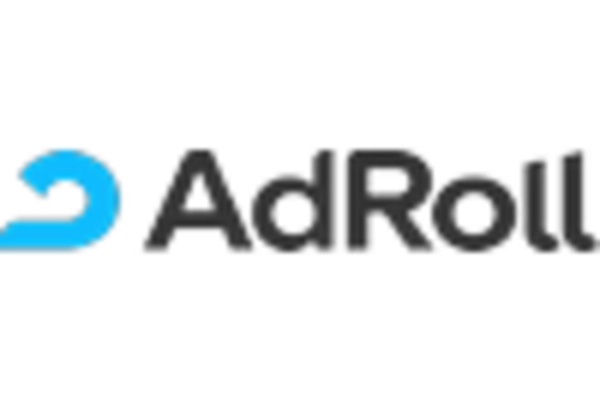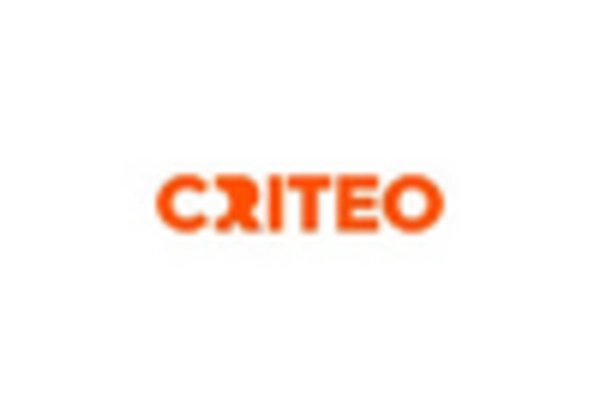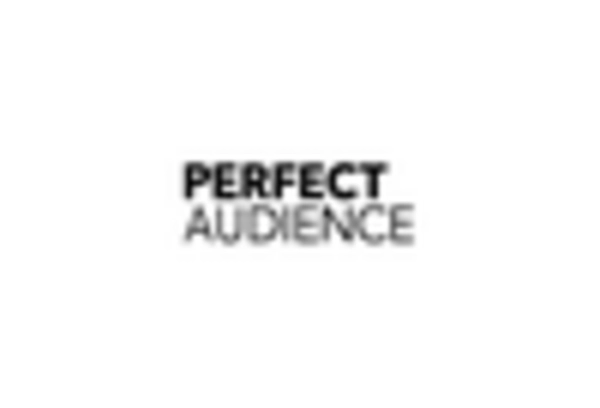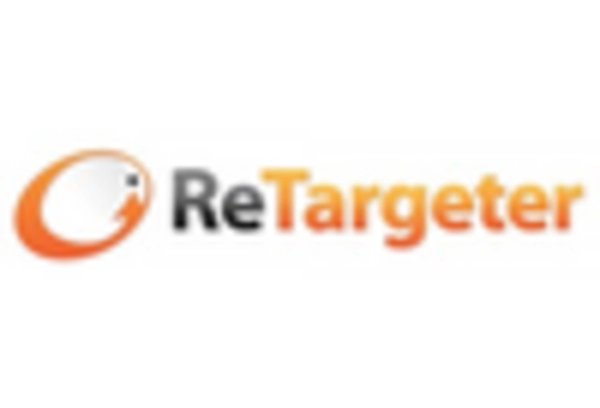Rising E-commerce Adoption
The Retargeting Software Market is significantly influenced by the rapid adoption of e-commerce platforms. As more consumers turn to online shopping, businesses are compelled to implement effective retargeting strategies to recapture the interest of potential buyers. Recent statistics indicate that e-commerce sales have seen a substantial increase, with projections suggesting a continued upward trajectory. This shift presents a lucrative opportunity for the Retargeting Software Market, as companies strive to optimize their online presence and drive sales through targeted advertising. By utilizing retargeting software, businesses can effectively remind customers of products they viewed, thereby enhancing the likelihood of conversion. The integration of retargeting solutions into e-commerce strategies is expected to be a key driver of growth in the market, as organizations seek to capitalize on the expanding digital landscape.
Advancements in Data Analytics
The Retargeting Software Market is being propelled by advancements in data analytics technologies. As businesses increasingly rely on data to inform their marketing strategies, the ability to analyze consumer behavior and preferences has become paramount. Enhanced data analytics tools enable companies to segment their audiences more effectively and tailor retargeting campaigns to specific demographics. This capability not only improves the efficiency of advertising efforts but also enhances the overall customer experience. The Retargeting Software Market is likely to benefit from the integration of machine learning and artificial intelligence, which can provide deeper insights into consumer behavior patterns. As organizations continue to invest in data-driven marketing solutions, the demand for sophisticated retargeting software is expected to rise, further fueling market growth.
Emergence of Mobile Advertising
The Retargeting Software Market is being shaped by the emergence of mobile advertising as a dominant force in the marketing landscape. With the proliferation of smartphones and mobile devices, businesses are increasingly focusing on reaching consumers through mobile platforms. This shift necessitates the implementation of retargeting strategies that are optimized for mobile users. Recent trends indicate that mobile advertising expenditures are on the rise, with a growing number of companies recognizing the potential of retargeting to engage users on their mobile devices. The Retargeting Software Market is likely to benefit from this trend, as organizations seek to develop mobile-friendly retargeting campaigns that resonate with their audience. As mobile usage continues to grow, the demand for specialized retargeting software tailored for mobile platforms is expected to increase, driving market growth.
Growing Demand for Customer Engagement
The Retargeting Software Market is experiencing a notable surge in demand for enhanced customer engagement strategies. Businesses are increasingly recognizing the importance of re-engaging potential customers who have previously interacted with their brands. This trend is driven by the need to improve conversion rates and maximize return on investment. According to recent data, companies utilizing retargeting strategies have reported up to a 400% increase in conversion rates compared to traditional advertising methods. As a result, the Retargeting Software Market is witnessing a proliferation of innovative solutions aimed at capturing user attention and fostering brand loyalty. This growing emphasis on customer engagement is likely to propel the market forward, as organizations seek to leverage data-driven insights to create personalized experiences that resonate with their target audiences.
Increased Investment in Digital Marketing
The Retargeting Software Market is witnessing a surge in investment as businesses allocate more resources to digital marketing initiatives. With the growing recognition of the effectiveness of online advertising, companies are increasingly turning to retargeting software to enhance their marketing efforts. Recent data suggests that digital marketing budgets are expanding, with a significant portion dedicated to retargeting strategies. This trend indicates a shift in marketing priorities, as organizations seek to optimize their advertising spend and achieve better results. The Retargeting Software Market stands to gain from this increased investment, as businesses look for innovative solutions to improve their online visibility and drive customer engagement. As competition intensifies in the digital space, the demand for effective retargeting software is likely to grow, positioning the market for continued expansion.


